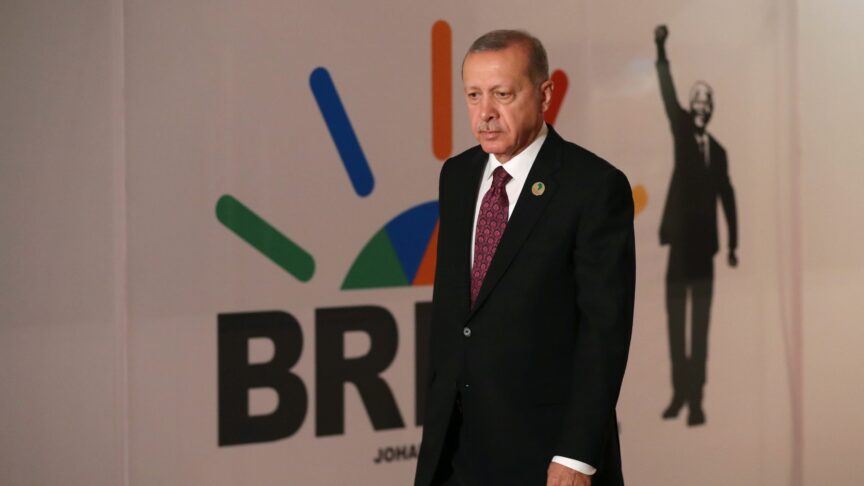Turkey votes in turbulent times
A troubled Turkey votes this Sunday, with elections once again a vote on the role of Recep Tayyip Erdoğan
Most polls suggest that Sunday’s snap elections in Turkey will not differ much from the previous election in June, with a “hung” parliament that will force the ruling conservative Justice and Development Party (AKP) to form a coalition with one of the opposition parties most likely. But in a nation deeply polarised along ethnic and sectarian lines, and with disagreements on the exact constitutional role of President Recep Tayyip Erdoğan, it is difficult to imagine a smooth ride in Turkish politics over the next few months.
AKP’s 13-year hegemony over the political scene was broken on 7 June, when the conservative party suffered a near 20 percent drop in its votes. Since then, the peace process between Turkey and the outlawed Kurdistan Workers Party (PKK) has collapsed and Turkey formally joined the anti-Islamic State coalition in Syria, resulting in three IS attacks inside Turkey (on Kurdish targets) with over 100 casualties.
In fact, once on track to become a member of the European Union, Turkey now seems more and more drawn into a Syrian quagmire – with over 2 million refugees and having imported the Kurdish-IS fight in Syria inside its own borders.
President Erdoğan has ratcheted up his nationalist tone against the PKK as well as the pro-Kurdish Peoples’ Republican Party (HDP)
Worse, as the election nears, Turkey is experiencing an economic slowdown and a crippling strategic confusion in terms of its relationship with the Kurds— in Syria or inside Turkey. At the height of the Arab Spring, when the peace process with the PKK was moving forward, Turkish officials often talked about “Turks and Kurds together re-shaping the Middle East.” Today, Ankara officials discuss the Kurdish issue in the “national security” narrative of the 1990s, and there have been small-scale urban insurgencies in several key Kurdish towns this summer. President Erdoğan has ratcheted up his nationalist tone against the PKK as well as the pro-Kurdish Peoples’ Republican Party (HDP) – whose 13 percent success at the ballot box in June effectively deprived Erdoğan of enough votes for the expanded presidential powers he was seeking.
Even in this highly charged political climate, the incumbent AKP is likely to be the top vote-getter again. Polling indicates that the pro-Islamist party’s vote share has been hovering at around 40-42 percent – roughly where they were in June when they received 40.9 percent. The AKP has been in power since November 2002 and for much of that period, Turkey experienced an economic growth and an expansion of its social security net. Along the way, AKP enmeshed itself with Turkey’s bureaucracy and key institutions, at times leading to accusations of a “party-state.”
It is precisely this omnipotence and the backlash against Erdoğan’s highly personalised style of governance that led to a drop in the AKP’s vote (compared to 2011 general elections). Since the Gezi uprising in June 2013, Erdoğan has been the single most powerful symbol of Turkish politics, with the nation almost equally divided between those that adore him and those who hate him. Yet despite evoking such visceral reactions, he was nevertheless able to beat a serious wave of corruption allegations in December 2014 – but at the cost of tightening his hold on the judiciary and media. Even though the Turkish constitution defines the presidency as a symbolic and non-partisan post, Erdoğan continues to maintain absolute power over his party, over the executive branch and influence over the judiciary.
In many ways, Erdoğan simultaneously remains Turkey’s most vulnerable and most powerful man.
To top it all, he has built a colossal presidential compound, or “palace” as most people call it, with 1100 rooms spread over 50 acres of forest land at the heart of Ankara in an estate that once belonged to Turkey’s founding father, Mustafa Kemal Ataturk – a move that has cemented his image in the eyes of critics as a despotic ruler.
In many ways, Erdoğan simultaneously remains Turkey’s most vulnerable and most powerful man and Sunday’s parliamentary elections, (just like the previous local, general and presidential elections) will really be about curbing or enhancing Erdoğan’s power.
A hike in AKP votes would signal to Erdoğan that voters approve of his authoritarian style – from his Putin-style takeover of media institutions to his combative tone towards critics. On the other hand, if the results go similarly to those of the June elections, with the AKP falling short of the majority to form a single-party government (276 seats needed), there would be an opportunity for Erdoğan’s hand-picked successor, Ahmet Davutoğlu, to exert his independence and pursue coalition alternatives.
Davutoğlu is known to favor a “grand coalition” with Turkey’s main opposition party, the social democratic Republican People’s Party (CHP) with the hope that such a power-sharing deal would ease Turkey’s international isolation and reduce domestic tensions. Erdoğan’s preference, on the other hand, would be for a coalition with ultra-nationalist and socially conservative Nationalist Action Party (MHP); even though such an arrangement would undoubtedly deepen the conflict with the PKK and further alienate Turkey’s Kurdish population.
Whatever parliamentary arithmetic emerges on Sunday night, it is likely that Erdoğan will remain the dominant political figure –hence the backlash against him will continue to be the chief political dynamic in the country. The best scenario would be a coalition government determined to resume the Kurdish peace process, tackle Turkey’s economic vulnerabilities and reverse its democratic backsliding. The more unfortunate one would be further deepening of Turkey’s internal divisions and the onset of the Kurdish war. The most likely scenario is more of the same – turbulence.
The European Council on Foreign Relations does not take collective positions. ECFR publications only represent the views of their individual authors.


